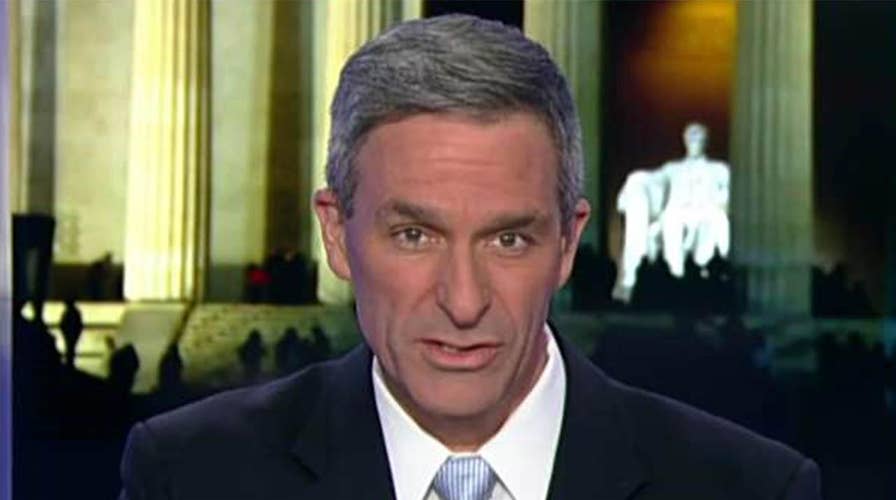New green card rule for immigrants using welfare
New rule would make it easier to deny green cards for immigrants getting government assistance; USCIS acting director Ken Cuccinelli weighs in.
Immigrants who get tested or treated for the coronavirus will not be penalized when applying for citizenship under a public charge rule that restricts green cards for those who use taxpayer-funded services.
In a statement, the U.S. Citizenship and Immigration Services said that it is encouraging anyone with symptoms of the COVID-19 to seek medical treatment.
"Such treatment or preventive services will not negatively affect any alien as part of a future Public Charge analysis," the agency said.
"To address the possibility that some aliens impacted by COVID-19 may be hesitant to seek necessary medical treatment or preventive services, USCIS will neither consider testing, treatment, nor preventative care (including vaccines, if a vaccine becomes available) related to COVID-19 as part of a public charge inadmissibility determination," the agency continued.
CANADA CLOSES BORDER TO NONCITIZENS AMID CORONAVIRUS; AMERICANS EXEMPT, TRUDEAU SAYS
The public charge rule went into effect last week after the Supreme Court in January allowed the Trump administration to enforce it.
The rule essentially restricts immigrants entering the United States if the government believes they will rely on public assistance such as welfare or health care and housing benefits. Lower federal courts had blocked the rule from being enforced before the high court ruling.
Ken Cuccinelli, acting deputy secretary of the Department of Homeland Security, assured lawmakers last week in a closed-door briefing that immigrants seeking coronavirus testing or treatment would not be penalized.
Several Democratic lawmakers praised the USCIS announcement.
Rep. Joaquin Castro, D-Texas, called it "an important first step," according to CQ Roll Call.
"COVID-19 does not differentiate between the wealthy and poor or immigrants and citizens – therefore, we must close any gaps in our health system so that everyone has the same access to care right now," he said in a statement.
CLICK HERE FOR THE FOX NEWS APP
Rep. Norma Torres, D-Calif., an opponent of the public charge rule, also commended the agency.
"I see this as a signal from the USCIS that they recognize that American lives potentially are at risk due to this public charge rule," Torres said. "We have to encourage people to come forward. I want to make sure that everyone in the household that might have been in contact with somebody that has been infected with coronavirus is able to get tested and get treatment."
























